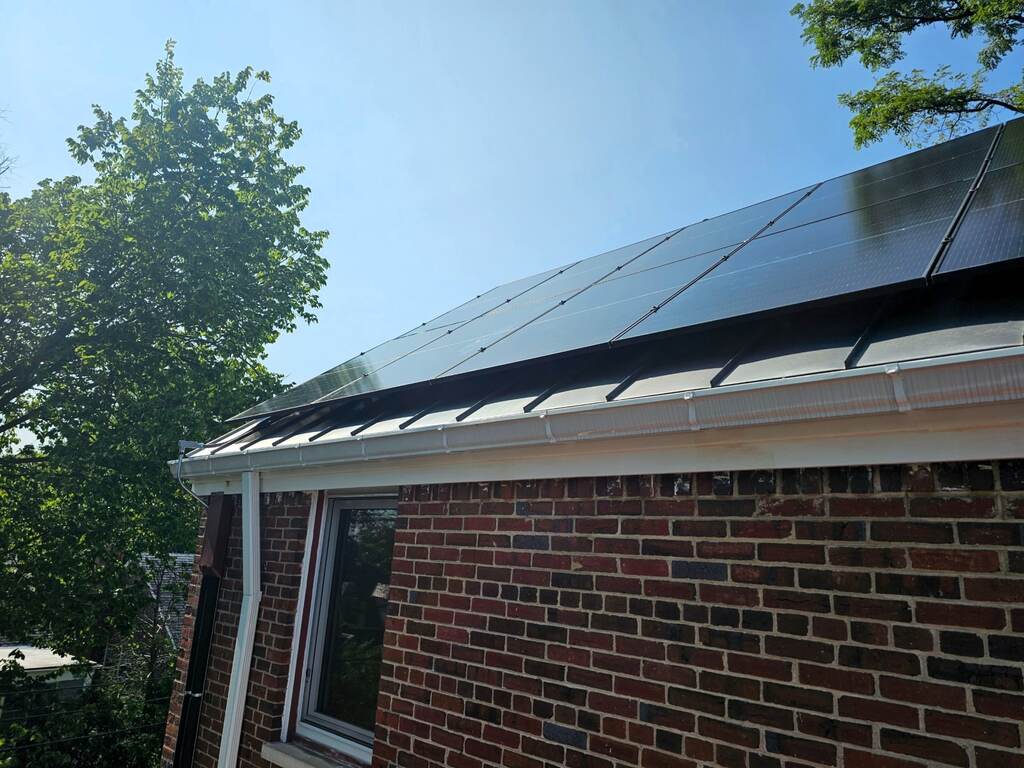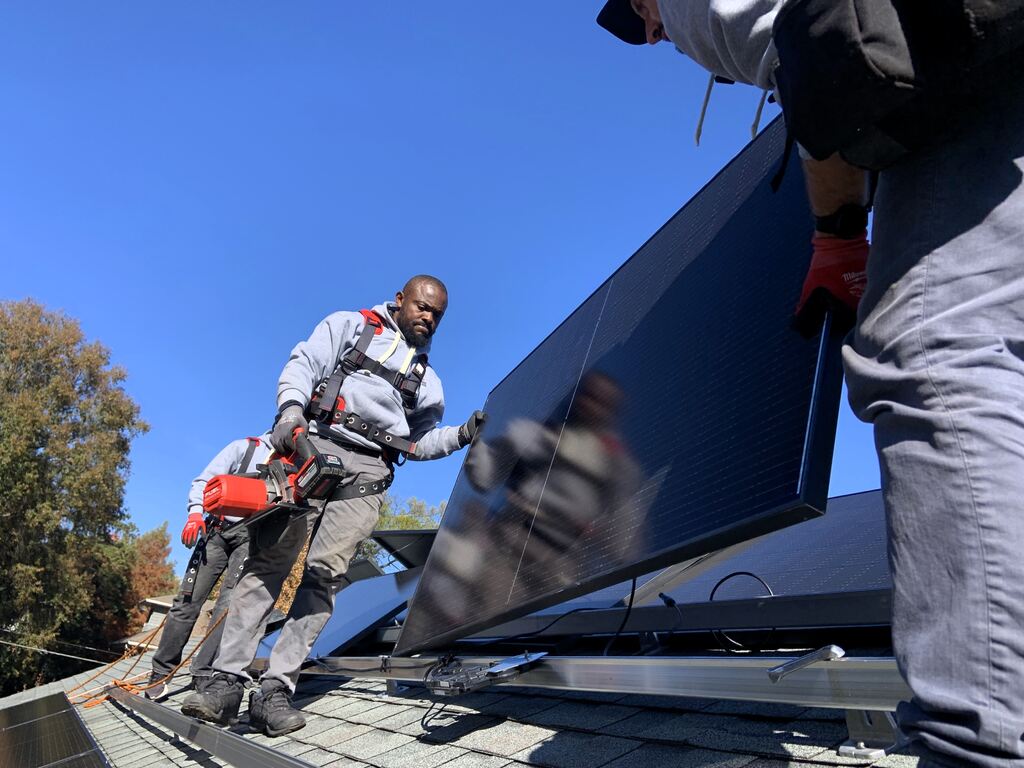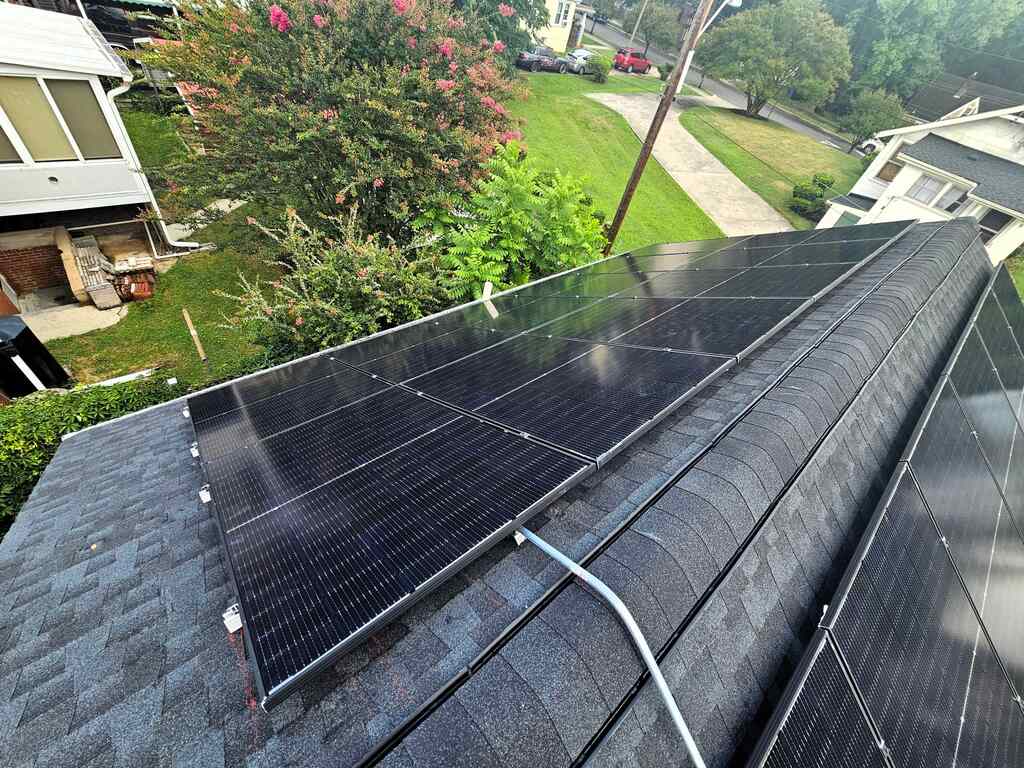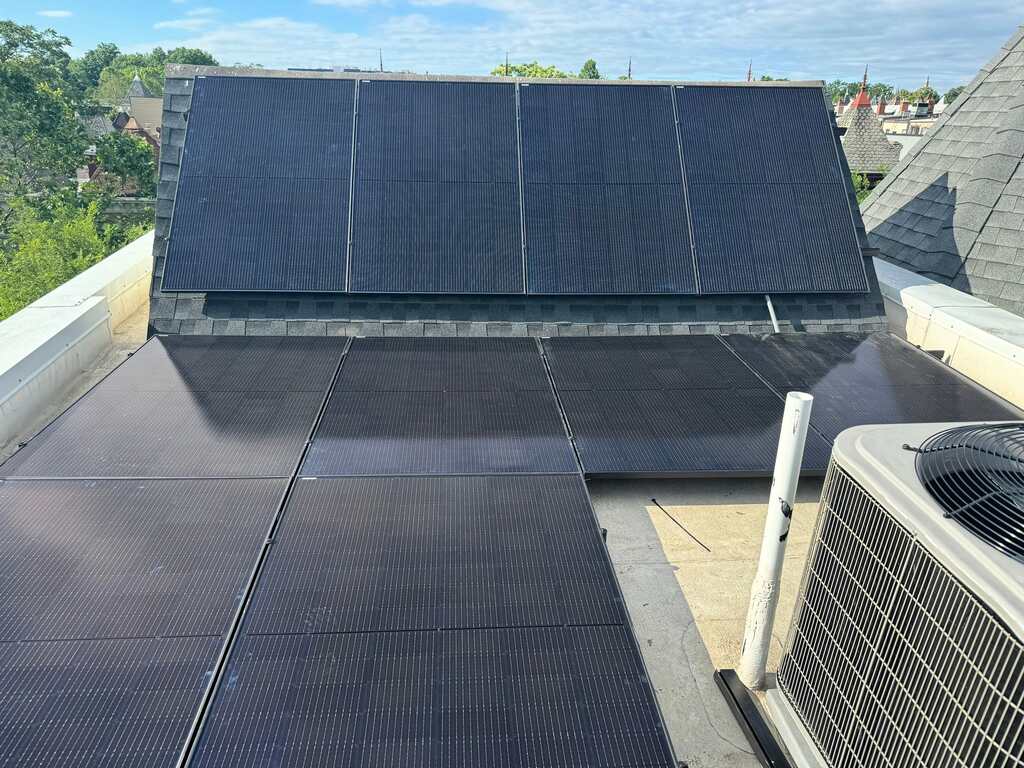
What’s the first thing you think when you hear the words ‘free solar’? Like many people we talk to, your first thought may be, “That’s too good to be true.” In many cases, free solar is too good to be true. Spoiler alert: someone does pay, but at Uprise, that someone is us. Here are the nuts and bolts of how we can offer our no-cost solar program.
First: what is Uprise’s no-cost solar program?
At Uprise, we’re able to offer no-cost solar to all communities in Washington DC and the Beltway because we count as the system owner, so we receive incentives like the federal solar tax credit and Solar Renewable Energy Credits (SRECs). Our arrangement is structured similarly to a Power Purchase Agreement, or PPA. You pay the solar system owner — Uprise — for the electricity the panels generate, at rates lower than what you’d pay your utility company. So you’ll save significantly on your power bills — 50% to 80%, in fact. (Some customers find that all they owe their utility company are the connection fees, typically around $20 a month.)
Another way to think of our no-cost solar program is like a trade. We’re using the room on your roof to install solar panels, which earn us money, and in return you get cheaper, cleaner electricity.
Maintenance is on us with the PPA for the first 20 years. After 20 years, you count as the system owner. But if something breaks during those first 20 years, we’ll cover the cost.
If system ownership isn’t your goal but you still want to save on your power bills, Uprise’s no-cost solar program is a fantastic option. Read through our blog post on the program to find answers to common questions, and as always, you are welcome to call or email us to talk more!

Who pays for free solar?
Our no-cost solar program wouldn’t work as well in all areas of the country. But in the DC area, it makes financial sense for us. The District government has set ambitious climate targets, so it’s in their interest to make solar attractive. They’ve pursued multiple options to do so, but the key one here is SRECs.
Utility companies like Pepco purchase SRECs to reach renewable portfolio standards, which state how much clean energy the District requires utility companies to use. When your solar panels generate one megawatt-hour of power, that’s one SREC. In DC, SRECs are very valuable — typically around $400 for one SREC. As residential rooftop systems generate about 10 SRECs a year, you can see residential solar becomes profitable quickly. Add in the 30% federal solar tax credit, and systems in DC can be paid off in around three to five years.
Another way to think of SRECs is like a carbon tax, or the price put on carbon emissions created by people or businesses.
SREC prices aren’t as high in other places of the country — and many states don’t even have a SREC market at all. Not only does DC have a thriving SREC market, but ours is the best in the country, largely due to progressive climate policies put in place by the DC government.
So the short answer is: the DC government, utility companies, and companies offering a PPA like Uprise pay for free solar.

Why would DC incentivize free solar?
Two words: climate change. More than two words: if we want to build a sustainable future for generations after us, renewable energy is part of the equation. Solar enables us to generate electricity without the carbon emissions of fossil fuels. It improves air quality, protects human health, and helps protect ecosystems and wildlife.
Solar also creates jobs. The Department of Energy’s 2023 U.S. Energy and Employment Report found growth in the clean energy workforce. Per the report’s press release, “Clean energy technologies, such as solar and wind, accounted for more than 84% of net new electric power generation jobs, adding over 21,000 jobs…energy jobs are expected to grow across the nation.”
Solar is good for your family, your neighborhood, and your city. It’s a win-win: with solar, you’ll save money and the environment.

Is free solar always free?
No. When you hear the words ‘free solar,’ it’s good to drill into what that really means. Uprise’s no-cost solar program is here to stay — it’s just how we do business. But it’s important to be aware of the solar scams out there. Unfortunately, they do exist.
First of all, the federal government does not offer free solar panel installation. Government incentives can make affordable solar possible, but they are not out there giving it away for free.
Also beware of companies requesting a big deposit upfront before performing any work. At Uprise, our sales team creates a free solar design and discusses it with you before we ever ask for a deposit. The design will show you how much of your electricity use the panels will cover, your estimated solar savings over 30 years, and, if you do decide to pay for solar, your payback period.
Watch out for dubious PPA contracts as well. They might include things like escalator clauses, meaning a company can charge you more for electricity after a certain period of time. Uprise contracts do not include escalator clauses. (We also think PPAs are better than leases; here’s why.) Dig into any solar contract you’re offered — and ask us all the questions about the contract we provide. Transparency is very important to Uprise.
We also advise you to take your time and think about what you’re signing. You should never feel pressured to sign anything right away — and if a solar company does pressure you to sign immediately, that’s a red flag.
The Office of Energy Efficiency & Renewable Energy has a great guide with solar shopping tips. (Also check out their Homeowner’s Guide to Going Solar!)
Any other questions?
We encourage you to reach out to us! Many of the team members at Uprise have spent at least five to ten years in the solar industry (some, even more!), and we like to think we’ve learned a few things along the way. We’d be happy to talk with you about all things solar. Call us at (202) 280-2285 or reach out online.
Schedule Consultation
Uprise Solar is dedicated to providing affordable and accessible solar solutions for both residential and commercial properties in the DC, Maryland, and Virginia area.
"*" indicates required fields
